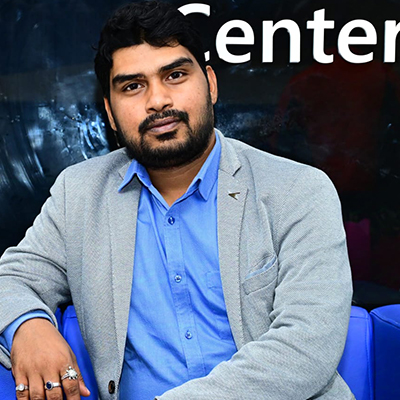Holistic Development: Shaping Futures Beyond Academics | Braja Kishore Pradhan | Founder | Aahwahan Foundation
 In today’s fast-paced world, where academic performance is frequently prioritized, it is critical not to neglect children’s whole development in schools. This comprehensive approach is important because it helps create a balanced, well-rounded individual who can face life’s challenges. A good education should go beyond examinations and books to include the development of emotional intelligence, self-awareness, and cognitive skills.
In today’s fast-paced world, where academic performance is frequently prioritized, it is critical not to neglect children’s whole development in schools. This comprehensive approach is important because it helps create a balanced, well-rounded individual who can face life’s challenges. A good education should go beyond examinations and books to include the development of emotional intelligence, self-awareness, and cognitive skills.
Understanding Of Holistic Development
Holistic Development means nurturing all aspects of children’s growth – cognitive, physical, social, and emotional. It is important to understand that these areas are connected. If one area is ignored it can have a negative impact on the other side. It emphasizes that a person is more than their academic performance and that their psychological and emotional growth are just as important in creating children’s future.
Cognitive Development- Children’s cognitive development often focuses on academic achievement, but it’s essential to go beyond memorization to encourage critical thinking, problem-solving, and creativity. This deeper development helps them understand and engage with the world.
Emotional Development- It includes being aware of and in control of one’s emotions as well as understanding and experiencing what others are feeling. Schools have a significant impact on student’s development of emotional intelligence.
Physical Development- Reflects the proper functioning and overall well-being of a person’s body. It is not just about avoiding diseases, but also about adopting an active lifestyle and good nutrition.
Creative and Critical Thinking – In a world that’s constantly evolving, creative and critical thinking skills are key for solving problems. a well-rounded education helps students stay curious, ask questions, and think outside the box. ativities like art, music, and writing let them express themselves and build confidence, encouraging them to develop unique ideas and bounce back from challenges.
Spiritual and ethical Awareness – Holistic growth also means paying attention to what’s going on inside. spirituality is personal, but practices like mindfulness, empathy, and gratitude can help students understand themselves better and feel more grounded. learning to think ethically helps them consider the impact of their actions, shaping them into thoughtful and responsible global citizens
The Necessity of Comprehensive Development in Rural Areas
Rural communities frequently face unique challenges that interfere with educational outcomes. These include inadequate infrastructure, limited resources, and socioeconomic barriers that affect children.
Effective holistic education involves parents and community members in the learning process. In which, it enhanced the outcomes of education. By integrating vocational training and skill-based education with local economic needs, students can be equipped with practical skills. Similarly, Aahwahan Foundation has launched over 37 projects aimed at enhancing educational facilities for children in rural and underprivileged areas.
Fostering Children’s Actual Ability
In addition to teaching academic knowledge, education in rural schools aims to identify and boost each of the children’s unique talents. Every child has different skills and interests, and overall development needs to recognize and grow these qualities. Encouraging children’s genuine abilities in rural schools is essential to their overall development. Children’s self- confidence is boosted and they can pursue their goals when communities and schools work together to identify and support their talents. By doing this, we can produce a generation that will
use their specialty to better lives and contribute positively to society.
Character Education
In their interactions with others, students are urged to act morally, set personal objectives, and consider their values. Character education programs help students acquire qualities that are necessary for success in school and beyond, like integrity, perseverance, resilience, and respect.
Art and Creativity
Supporting arts and creativity in rural schools is an important part of identifying and developing the true talents of children. Arts education enhances not only artistic skills but also skills like critical thinking, problem-solving, and emotional expression. Also, this helps children reduce the stress.
The Development of a Comprehensive Strategy to Promote Holistic Education
The concept of “development” is everywhere in education, though it means different things depending on the context. most studies on education focus on short-term programs for at-risk children, often only looking at one or two aspects of their growth. but to truly support kids, we need to make their overall development a key part of their school experience. education should aim to teach meaningful values that give kids a sense of purpose and help them see beyond their immediate interests, preparing them for what might matter to them in the future.
To create well-rounded people who can thrive in different areas of life, holistic education is essential. this approach values emotional, social, and physical growth just as much as academics. in rural areas where resources are often limited, holistic education can help uncover kids’ true potential, boosting their self-confidence and helping them discover their strengths.
combining character education with the arts allows children to learn not only academic skills but also to develop creativity and emotional awareness. in the end, holistic education gives children the tools they need for a fulfilling future and prepares them for all aspects of life. if we want a generation that is both capable and well-rounded, we should wholeheartedly support this approach to education.


